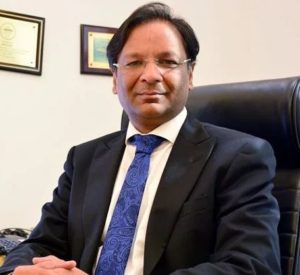Ajay Singh : The Man Who Saved SpiceJet From Vanishing into Oblivion
What is good in doing business without risks? When one aims for something bigger and more profitable, it is reasonable to go against the odds and take the chances. But, what about the companies whose strategies are failing and going downwards in the spiral of destruction? Should it give up or just hope for a knight in shining armour to appear and be the lifesaver. Well, the story of SpiceJet clearly narrates a tale, where they well resurrected by none but Ajay Singh. After facing excessive loss through 4 consecutive financial years, Ajay Singh finally stepped in to take over the control once again and re-establish the reputation of the company.
SpiceJet is an Indian airline headquartered in Gurugram whose history dates back to 1984.
Early Life
Singh was born into an influential family from Delhi. His father was an established businessman, Vijinder Singh, and his mother was Kalpana. Singh’s family business was mainly about real estate and fashion accessories.

Singh was kind of an all-rounder from a very young age. He went to St. Columba’s School and apart from excelling in his academics, he was very good at playing cricket, table tennis and football. He was also the caption of his school’s football team. After completing his school, he went to IIT Delhi and graduated from there in 1988 with a degree in textile engineering. And, like kids in the family of every other businessman, he went to pursue his MBA. He completed his MBA from Cornell University.
Early Career
At Cornell, he became the President of the Indian Association, and thus, showed a keen interest in the events of India related to government policies. He was also interested in political matters and thought that more educated people are needed in the Indian political system. So, he came back to India in 1992 and pursued law at Delhi University.
In 1996, Rajendra Gupta, a BJP leader who later became Delhi transport minister, hired Singh for Delhi’s transport corporation board. After joining his first responsibility was to stabilize an already bankrupted corporation, which had 40,000 employees. Singh implemented the global transportation strategies and expanded the corporation from 300 to 5000 buses within a span of two and a half years. This was his first achievement after returning to India and stepping into both the political and business world.
In 1998, Singh became an officer on special duty (OSD), where he played a major role in launching DD Sports and DD News. Singh had some plans and suggestions in his mind to reduce the cost of telephony, and thus, persuaded BSNL to drop the incoming charges on mobile. All these developments took place only up till 2004 when BJP lost the general election, and Singh found him unemployed.
Singh Acquired SpiceJet
After BJP lost the election, Singh decided to get back in the entrepreneurial world, and his first move was to acquire ModiLuft and carrying the business as SpiceJet.
Looking back to the history of ModiLuft, it was an airline company established in 1984 by S.K Modi. In 1993, it came into a partnership with Lufthansa, a German airline, but in 1996, it ceased the operations.
So, whatever was left of the company was acquired by Singh after eight years, and this time, he renamed it as SpiceJet and followed the low-cost model to provide a good experience and low fare to the public.
Initially, Singh’s stake was 20% in SpiceJet, but it came to 6% when media tycoon Kalinathi Maran acquired 37.7% in 2010. Eventually, Singh sold his remaining stakes too.
The Downfall of SpiceJet
After Singh stepped down, SpiceJet rocketed in terms of making consecutive losses in three years. In the year 2012, SpiceJet faced a loss of Rs 604 crore followed by Rs 192 crore, Rs 1,001 crore, and Rs crore, in the next three following years.
The market share dropped from 20.9% in 2014 to 9.2% in 2015. Increased number of employees also created a problem, as, after some time, the company was unable to pay them. The oil companies also refused to refuel them, and by 2015, the company was barely able to crawl on the surface with no chance of survival. This is when Singh stepped in.
Bringing SpiceJet Back to Business
Singh was back in the territory of SpiceJet in 2015 and acquired 58.46% stakes of the company. He spotted that over employment was a very big issue with the company and brought down the number of employees to 4,000 from 5,500. After facing crores of loss for four consecutive years, the company finally made a profit of Rs 450 crore in 2016.
Today, SpiceJet has become India’s fourth-largest airline in terms of passengers and operates 306 flights on a daily basis.

Annasha Dey is an NIT student, who apart from studying engineering is also a content writer. She has a great interest in photography, writing, reading novels, and travelling as well. She is a foodie who loves socializing and hanging out with her friends. She is also a trained Kathak dancer and a big fashion enthusiast. Dey also loves watching TV series, which includes F.R.I.E.N.D.S. and Big Bang Theory. To be a better writer she prefers to read more
